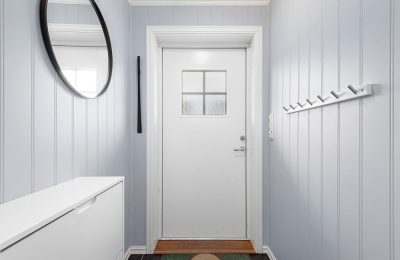The summertime brings with it sunshine, high temperatures, and unfortunately a lot of unwanted visitors. Pests such as ants, flies, and wasps can be frustrating to deal with, and summer is when they come out to make your life difficult. Other pests like rats and mice will also be looking for ways to infiltrate the home all year round. Once these unwelcome visitors find their way into the property, they can be a nuisance to get rid of and can even cause damage to the property in some cases. In rented properties, it can often be unclear who is responsible for handling pest-related problems.
Common pests
The sighting of one ant usually indicates that more are not far behind. Ants make their way into the property during the warm weather in search of food that they can take home to their colony to feast on. Ants are very social creatures, and leave a trail of pheromones behind them to let their friends know where they’ve been. So once ants have made it into the property, it can be an ordeal to stop them coming back. Ants are not the only insect to watch out for, as flies will also be attracted to food, and as spreaders of disease they can contaminate any food they land on, a potential threat of food poisoning.
Vermin like rats and mice are scavengers, attracted to rubbish and, much like ants, will come into the home searching for food. Rodents who have gotten into the home are not only known to carry disease, but can cause damage by chewing on wires and fixtures. If you have a problem with rats or mice, your local council might be able to help you get rid of them.
If you can hear a buzzing sound in your home, this might be a sign that a swarm of wasps have decided to make your home the site of their nest. Wasps like to make their nests in dark places, and may settle down in your loft or shed, or even in gutters. Wasps will attempt to sting when threatened, so rather than try to get rid of the nest yourself, you should contact a professional to remove it.
Who’s responsible?
The landlord may be responsible for pest infestations when:
- The tenancy agreement stipulates that they are responsible for dealing with infestations, or that they will maintain the rental property in a “good and habitable state”
- An infestation occurs due to failure of making necessary repairs or maintenance to the property, such as not fixing holes in the walls
- If the infestation makes the rental property unsafe for the tenant(s) to live in, such as causing illness
- The pests were already present before the tenant moved in, or it has been an ongoing issue at the property
Whereas the tenant would be responsible where a level of cleanliness has not been maintained, which has then resulted in the occurrence of pest infestations. For example, a dirty kitchen where food waste and dirt has accumulated presents an ideal environment for insects such as ants and flies to thrive.
Pests and deposits
Where proper care has not been taken to prevent pests in the property, this could result in a deposit claim at the end of the tenancy. This could involve damage that has resulted from vermin, or costs for dealing with the removal of unreported pests after the tenant has left. Absence of pests is something that is commonly forgotten about when it comes to the check-in report, and including this detail could be important if there is a claim that relates to pests come the end of tenancy. It is worth also including information about responsibilities when it comes to pests in the tenancy agreement, so that the tenant can clearly see what they are responsible for/ expected to do – for example ensuring that the property is kept clean.
Where a dispute does arise following a deposit claim, the landlord will need to provide evidence that the tenant is at fault. The inventory outlining the state of the property before and after the tenancy is crucial evidence, along with contractor reports for any work that has had to be carried out. Tenancy deposit scheme SafeDeposits Scotland advises that there is clear communication between the landlord and tenant at all times as this will minimise chances of any issues in the property getting worse and leading to a dispute later down the line. Receipts of any communication should be kept, as they may be useful pieces of evidence.











